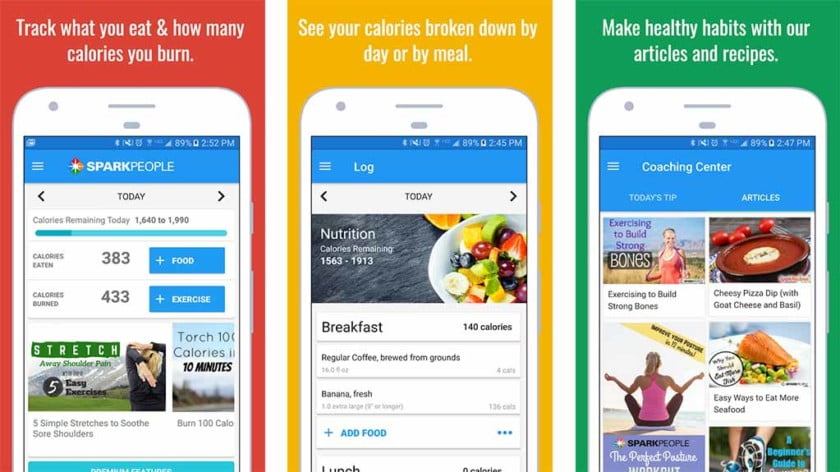A microscopic organism has changed the world. Borders have been sealed again, friends and families have distanced themselves. Offices have shut and educational institutes are deserted. The novel Coronavirus or COVID-19 is spreading at an alarming rate throughout the world and all of this seems like a scene from a science fiction movie, isn’t it? It isn’t. With more than 300,000 people infected and 16,000 dead, this is not your average seasonal flu.
Effect of the pandemic on the economy and businesses
The Coronavirus has affected both people and economies. As companies shut down or do less business than usual, workers get immediately impacted and so do their families. In a ripple effect, shares have fallen to negative values, interest rates have been cut and the hospitality and travel industry has mostly shut shop. Factories have closed, and construction sites have been abandoned. Car sales have dipped and most non-essential spending by people has been stopped. Growth forecasts in the entire world have been downgraded.
A ray of hope
However, not all is lost. There are many industries that actually show a rise in business as the spread of the virus increases across geographies. Some of these industry verticals include:
1. Medicine
Companies have seen a massive spike in orders and a large-scale push towards innovation.
- Pharma companies are scrambling to develop a vaccine in record time, testing companies are churning out test kits on warp mode, showing no signs of a slowdown in the coming months.
- Medical Products : Technology companies like those selling respirators and ventilators are also doing brisk business, due to the nature of this outbreak.
- Medical Technology
- Telemetry is the process of gathering data from instruments remotely. Telemetry is showing immense promise in medicine by helping caregivers get access to patient data without being in proximity to them. Many medical technology companies are producing quarantine monitors to ensure that workers can be at a safe distance from infected patients, yet get the vitals they need to provide quality care.
- Telemedicine helps doctors around the world to provide help and diagnosis in areas where their availability is scarce. Telemedicine has immense potential in this situation, as doctors can help ground workers analyze and act upon directions, and help their colleagues treat patients better.
- Telemetry is the process of gathering data from instruments remotely. Telemetry is showing immense promise in medicine by helping caregivers get access to patient data without being in proximity to them. Many medical technology companies are producing quarantine monitors to ensure that workers can be at a safe distance from infected patients, yet get the vitals they need to provide quality care.
2. Home Services
The recent spike in infections has propelled people to get their homes and offices disinfected and deep cleaned. Home cleaning services have seen a spike in orders as people scramble to get services in the comfort of their own home. These companies have seen a huge spike in hiring across the globe. Home services that appear to be high in demand include:
- Deep cleaning services
- Fumigation in homes and offices
- Beauty and lifestyle
- Handymen for repairs
3. Delivery services
Delivery services have seen a spike all over the world. As people scramble to get products delivered to their homes, delivery services have become a godsend for them. Services like BigBasket, Amazon, and Gophers have become more like essential services, helping people get products in the comfort of their homes and are hiring in a big way to meet demand. Amazon alone has a demand for over 100,000 temporary workers for their delivery services division to help deliver products during these times.
4. Online Education and Edtech
Education is thriving in these trying times. As most colleges and schools are closed, educational institutions have turned to technology and online edtech services like Coursera and Udemy have started to offer distance education so that students do not miss study time even during a crisis.
5. Streaming services and entertainment
Services like Netflix, Amazon Prime, and YouTube are helping people stay engaged during the crisis period. These services also serve as a medium to provide information to the masses in the absence of newspapers. Online gaming services have also seen a tenfold rise in their user base.
6. Home fitness and wellness
People are confined indoors, most of us would like to stay fit, and a good way to do this is by exercising at home. Staying fit also helps us boost our immunity and fight diseases better. Companies like Peloton are offering home gym equipment doorstep deliveries that people can stay fit indoors. Services like online fitness training apps have also started to crop up, helping people develop exercise regimes that help them stay fit during this time using yoga, deep breathing, and other targeted fitness regimens.
7. Diet and nutrition
Most of us are stuck at home, resigning to a diet of crisps and crackers seems inevitable, but a well-balanced diet is as important as staying fit. Online services like diet management apps and personalized diet regimens on Instagram and other social media platforms are helping people stay healthy, fit and keep a balanced diet going.
8. Remote working and conferencing
Software companies struggle to meet deadlines, most companies have asked their employees to work from home during this period of crisis. Remote work software like WeChat Work, DingTalk, Zoho home, Google Apps suite and remote conferencing services like Zoom, WebEx and many others help employees around the world collaborate and turn their homes into workplaces, ensuring business continuity at all times.
The Coronavirus has changed the way the world works today. No aspect of our economy has been left untouched and the virus has threatened jobs and growth across industry verticals. Technology has come to the rescue by offering alternative and new industry verticals that are helping the economy get the much-needed boost.













Haliyle ne özellikleri kullanabiliyorum, (video indirme, reklamsız izleme) ne de üyeliği iptal ed…
Hello. [url=https://commision.biz/]play online casinos real money[/url]
[url=https://avana.cfd/]dapoxetine 2018[/url]
[url=http://accutane.cfd/]generic accutane online[/url]
The color of your blog is quite great. i would love to have those colors too on my blog.”;:-`
[url=https://colchicine.cyou/]buy colchicine without prescription[/url]
Hey would you mind sharing which blog platform you’re working with? I’m going to start my own blog in the near future but I’m having a hard time choosing between BlogEngine/Wordpress/B2evolution and Drupal. The reason I ask is because your design and style seems different then most blogs and I’m looking for something unique. P.S My apologies for being off-topic but I had to ask!
Its like you read my mind! You seem to know a lot about this, like you wrote the book in it or something. I think that you can do with some pics to drive the message home a bit, but instead of that, this is magnificent blog. A fantastic read. I will certainly be back.
[url=http://trazodone.cfd/]trazodone 0.5 mg[/url]
[url=http://fluconazole.cyou/]diflucan online paypal[/url]
kirkland allergy pills toronto allergy medication without side effects piriton allergy tablets canada
where can i buy doxylamine modafinil 100mg canada
order deltasone 20mg pill prednisone 20mg us
best over the counter heartburn buy allopurinol 300mg pill
strongest prescription acne medication omnacortil 20mg without prescription best pimple medication for teenagers
[url=https://albuterol.cyou/]buy albuterol over the counter[/url]
[url=https://citalopram.cyou/]citalopram 16 mg[/url]
antacid prescription drug names order roxithromycin 150mg sale
buy accutane no prescription accutane 10mg brand isotretinoin 20mg tablet
order amoxicillin pill amoxicillin 250mg canada order amoxicillin 500mg sale
buy sleeping pills uk online melatonin over the counter
buy azithromycin 250mg online azithromycin sale zithromax ca
buy gabapentin 600mg without prescription buy neurontin 600mg sale
You can certainly see your expertise in the work you write. The sector hopes for even more passionate writers like you who are not afraid to say how they believe. All the time go after your heart. “We are near waking when we dream we are dreaming.” by Friedrich von Hardenberg Novalis.
Amazing, this article is an absolute gem! 🌟 I’m truly impressed by the richness of knowledge and the unique perspective presented here. It’s not often you come across content that’s both educational and captivating like this. Kudos to the writer for crafting such a fascinating piece! Your passion for the topic is evident in every word, making it a delightful read. 📚💡 Can’t wait to see what you develop next. Keep up the amazing work! 👏🎉 #Inspired #Enlightened
cost azithromycin azithromycin 500mg usa azithromycin 250mg cost
buy furosemide online cheap order lasix online
Забота о жилище – это забота о вашем комфорте. Термомодернизация фасадов – это не только стильный внешний вид, но и обеспечение теплового комфорта в вашем уголке спокойствия. Наша бригада, группа специалистов, предлагаем вам превратить ваш дом в прекрасное место обитания.
Наши творческие решения – это не просто теплоизоляция, это творческий процесс с каждым элементом. Мы предпочитаем идеальному балансу между красотой и практичностью, чтобы ваш уголок стал не только пригодным для жизни, но и шикарным.
И самое главное – приемлемая цена! Мы верим, что высококачественные услуги не должны быть сверхдорогими. [url=https://ppu-prof.ru/]Наружное утепление фасада цена[/url] начинается всего от 1250 рублей за квадратный метр.
Использование современных технологий и высококачественных материалов позволяют нам создавать теплоизоляцию, которая долго служит и надежна. Забудьте о холодных стенах и дополнительных расходах на отопление – наше утепление станет вашим надежным препятствием перед холодом.
Подробнее на [url=https://ppu-prof.ru/]http://ppu-prof.ru[/url]
Не откладывайте на потом заботу о радости жизни в вашем жилье. Обращайтесь к квалифицированным специалистам, и ваш уголок станет настоящим художественным произведением, которое подарит вам не только тепло. Вместе мы создадим пространство, в котором вам будет по-настоящему удобно!
Wow, this post truly opened my eyes to new perspectives! 😮 Your analyses are not only intriguing but also remarkably relevant in today’s world. I’m truly amazed with the breadth of your examination and the way you’ve articulated your points. Continue with the excellent work! 👏 Looking forward to explore more of your posts. This has definitely lifted my spirits and stimulated some engaging thoughts. 🌟🚀 #Enlightened #ThoughtLeader
cheap prednisolone 5mg purchase prednisolone pills oral omnacortil 40mg
Absolutely thrilled to share my thoughts here! 🌟 This content is refreshingly unique, blending creativity with insight in a way that’s engrossing and informative. Every detail seems carefully put together, demonstrating a deep appreciation and passion for the subject. It’s extraordinary to find such a perfect blend of information and entertainment! Big props to everyone involved in creating this masterpiece. Your hard work and dedication shine brightly, and it’s an absolute joy to witness. Looking forward to seeing more of this incredible work in the future! Keep amazing us all! 🚀👏💫 #Inspired #CreativityAtItsBest
brand amoxicillin buy amoxicillin 500mg online cheap amoxil for sale online
Absolutely thrilled to share my thoughts here! 🌟 This content is astonishingly innovative, blending creativity with insight in a way that’s engrossing and informative. Every detail seems carefully put together, exhibiting a deep grasp and passion for the subject. It’s rare to find such a perfect blend of information and entertainment! Major applause to everyone involved in creating this masterpiece. Your hard work and dedication are clearly evident, and it’s an absolute joy to witness. Looking forward to seeing more of this amazing work in the future! Keep rocking us all! 🚀👏💫 #Inspired #CreativityAtItsBest
acticlate buy online order vibra-tabs
buy generic ventolin inhalator buy albuterol without a prescription purchase albuterol inhaler
augmentin online buy augmentin 375mg generic
Making downloads fast and easy is our priority, not just
for individual videos but also for entire playlists.
synthroid 75mcg price synthroid 150mcg sale synthroid medication
order vardenafil 10mg generic purchase vardenafil online cheap
🌌 Wow, blog ini seperti roket meluncurkan ke galaksi dari keajaiban! 🎢 Konten yang menarik di sini adalah perjalanan rollercoaster yang mendebarkan bagi pikiran, memicu kagum setiap saat. 🎢 Baik itu inspirasi, blog ini adalah harta karun wawasan yang inspiratif! #KemungkinanTanpaBatas 🚀 ke dalam pengalaman menegangkan ini dari pengetahuan dan biarkan pikiran Anda berkelana! 🚀 Jangan hanya membaca, rasakan sensasi ini! 🌈 Pikiran Anda akan berterima kasih untuk perjalanan menyenangkan ini melalui ranah keajaiban yang tak berujung! 🚀
order clomid 50mg online order clomid pill buy generic clomiphene online
[url=http://wegovy.guru/]where to buy semaglutide online[/url]
purchase tizanidine generic buy tizanidine cheap buy tizanidine pill
buy semaglutide medication rybelsus for sale order rybelsus 14mg without prescription
socialmediatric.com
이 내시는 자금성 출신이지만 Zhang Yong의 관할이 아닙니다.
deltasone 20mg for sale order deltasone 5mg online order deltasone 10mg online cheap
[url=https://rybelsus.cyou/]wegovy medication[/url]
digiapk.com
Fang Jifan이 이러한 문제에 대해 열심히 생각한 것은 아닙니다.
semaglutide price rybelsus 14mg pill order rybelsus pill
order isotretinoin 40mg for sale oral accutane 40mg how to get isotretinoin without a prescription
chasemusik.com
Hongzhi 황제는 즉시 Zhou 가족을보고 Zhou 가족에게 절했습니다. “할머니를 봤습니다.”
order albuterol pills albuterol 4mg sale order albuterol 2mg
oral amoxil amoxicillin 250mg without prescription amoxil 1000mg generic
rivipaolo.com
백성을 사랑하고 자식처럼 대하는 것이 요순이 한 것이 아니냐?
order augmentin purchase augmentin for sale order amoxiclav online
azithromycin 500mg usa purchase zithromax pills order zithromax online
10yenharwichport.com
딸꾹질 후 Zhu Houzhao는 다시 마음에 의심을 품었습니다.
levoxyl order online oral levothyroxine levothroid cost
oral omnacortil 10mg prednisolone price buy prednisolone 5mg sale
clomid 50mg oral clomid pill buy generic clomiphene 50mg
10yenharwichport.com
“이봐…” 홍지황제는 우울한 한숨을 내쉬며 고개를 저었다.
order gabapentin 100mg pills gabapentin 800mg ca gabapentin oral
reggionotizie.com
Zhu Youtang은 불안했지만 동생을 보면 울음을 참을 수 없었습니다.
order lasix 100mg online furosemide 100mg for sale furosemide 40mg canada
sildenafil dosage viagra cost buy sildenafil 100mg sale
chasemusik.com
Liu Jian과 다른 사람들도 안도한 듯 몸을 숙이고 앉았다.
doxycycline over the counter doxycycline 200mg for sale doxycycline 100mg uk
rybelsus 14mg canada rybelsus 14mg pill order rybelsus generic
slots free online poker free roulette online free
tsrrub.com
이것을 생각하면 Fang Jifan은 도울 수 없었지만 눈물을 흘리고 싶었습니다.
vardenafil 10mg uk order generic levitra 10mg vardenafil 20mg cost
[url=http://rybelsus.best/]semaglutide weight loss[/url]
buy generic pregabalin 150mg order pregabalin 75mg sale buy pregabalin 75mg online
buy generic hydroxychloroquine over the counter buy hydroxychloroquine generic brand hydroxychloroquine 200mg
triamcinolone ca triamcinolone over the counter triamcinolone for sale
Дорогие Партнеры!
Приводим вам новаторское моду в мире дизайна домашней обстановки – шторы плиссе. Если вы движетесь к идеальности в всех подробности вашего дома, то эти гардины станут замечательным предложением для вас.
Что делает шторы плиссе настолько же неповторимыми? Они объединяют в себе в себе выгоду, утилитарность и применимость. Благодаря особенной формации, современным тканям, шторы плиссе идеально гармонизируются с для любого интерьера, будь то гостинка, ложа, плитка или офисное пространство.
Закажите [url=https://tulpan-pmr.ru]плиссе на окна[/url] – создайте уют и превосходство в вашем доме!
Чем манят шторы плиссе для вас? Во-первых, их индивидуальный бренд, который прибавляет очарование и стильность вашему интерьеру. Вы можете выбрать из различных текстур, оттенков и подходов, чтобы отметить особенность вашего дома.
Кроме того, шторы плиссе предлагают многочисленный ряд функциональных возможностей. Они могут контролировать степень сияния в помещении, остерегать от солнечных лучей, поддерживать закрытость и формировать уютную обстановку в вашем доме.
Наш веб-сайт: [url=https://tulpan-pmr.ru]http://tulpan-pmr.ru[/url]
Мы сами поможем вам подобрать шторы плиссе, какие прекрасно гармонизируются с для вашего оформления!
over the counter cialis tadalafil 10mg uk cialis 10mg oral
modernkarachi.com
이 충격에 훈훈한 정자에 있던 모든 군주와 신하들은 눈살을 찌푸렸다.
[url=https://semaglutide.monster/]wegovy[/url]
order desloratadine online buy desloratadine without prescription buy clarinex pills for sale
buy cenforce 100mg generic cenforce 50mg canada order cenforce 100mg online cheap
buy loratadine loratadine 10mg without prescription where can i buy claritin
aralen 250mg over the counter chloroquine 250mg tablet aralen oral
sm-slot.com
Zeng Jianwen은 Ouyang Zhi의 옛 관리였으며 Fang Jifan을 만났을 때 그는 매우 세심했습니다.
purchase priligy for sale misoprostol buy online buy cytotec 200mcg online
dota2answers.com
모든 관리들은 방금 장황한 목소리로 말했다: “나의 황제 만세.”
glucophage oral buy glucophage 500mg brand metformin 500mg
order orlistat 60mg diltiazem 180mg ca how to get diltiazem without a prescription
lfchungary.com
Fang Jifan은 눈을 가늘게 떴습니다. “우리는 배 위에 있습니다. 폐하 께서 떠나시기 바랍니다.”
amlodipine 5mg cheap norvasc 5mg tablet amlodipine price
buy zovirax online cheap allopurinol medication purchase zyloprim pill
smcasino7.com
피로 외에도 피로를 풀어주는 효과가 있습니다.
lisinopril 2.5mg brand order zestril 2.5mg generic purchase zestril pill
crestor pill buy ezetimibe for sale ezetimibe tablet
sm-slot.com
배에 올라 바람과 파도를 탔던 Fang Jifan은 안도의 한숨을 쉬었습니다.
lfchungary.com
“어…” Fang Jifan은 잠시 침묵했습니다. “조금 복잡해서 명확하게 설명할 수 없습니다.”
prilosec to treat stomach prilosec generic order prilosec 20mg pills
order domperidone buy sumycin generic tetracycline 250mg without prescription
sm-casino1.com
Mi Lu와 Xiao Xiangxiang은 모두 말없이 Fang Jifan을 바라 보았습니다.
pragmatic-ko.com
왕자에 대한 폐하의 칭찬이 들불처럼 퍼졌습니다.
purchase cyclobenzaprine generic purchase baclofen online cheap buy baclofen 10mg
buy metoprolol generic buy lopressor 100mg generic metoprolol us
Greetings! Very helpful advice on this article! It is the little changes that make the biggest changes. Thanks a lot for sharing!
pragmatic-ko.com
Xiao Jing의 송아지가 떨렸고 갑자기 떨기 시작했습니다.
buy toradol paypal colchicine order online order colchicine 0.5mg pill
cheap atenolol 50mg tenormin 50mg oral buy atenolol 100mg pills
pragmatic-ko.com
이 문장은 Liu Jian의 첫 번째 생각과 정확히 동일합니다.
sm-casino1.com
매장은 이미 임대가 완료되었으며 신시가지 최고의 위치입니다.
[url=https://wegovy.company/]wegovy diabetes medication[/url]
oral methylprednisolone cost medrol generic name medrol 8mg tablet
bistroduet.com
외침 : “Duke Qi, 암살자를 조심하십시오!”,
pragmatic-ko.com
Wang Shouren, 어떻게 Fang Jifan이 이 사람이 무술을 알고 있다는 것을 인식하지 못합니까?
order inderal online cheap inderal order online order plavix 150mg pill
write essay service help writing papers buying a research paper
lfchungary.com
하지만…그들은 반란을 쉽게 해결했고, 그들을 맞이하러 오지 않아도 상관없었다.
methotrexate over the counter where to buy methotrexate without a prescription buy coumadin
dota2answers.com
이때 Liu Huiwen의 얼굴에 미소가 서서히 사라지기 시작했습니다.
Don’t let a poor connection ruin your vibe! Download videos at https://allvideosaver.net/ and enjoy seamless, uninterrupted entertainment.
[url=http://semaglutideozempic.com/]generic wegovy cost[/url]
buy mobic 15mg sale mobic 15mg oral celebrex canada
twichclip.com
Fang Jifan은 “당신이 나를 때리지 않으면 자연스럽게 도망 가지 않을 것입니다. “라고 말했습니다.Fang Jifan은 “사실 불가능하지 않습니다. “라고 말했습니다.
reglan order online losartan 50mg pill cozaar where to buy
jbustinphoto.com
Fang Jifan은 웃었고 얼굴 근육이 다시 긴장되었습니다.
khasiss.com
의외로 Fang Jifan은 이미 펜을 썼고 질문에 가장 빨리 답한 사람이었습니다.
where to buy flomax without a prescription order celecoxib 100mg generic generic celebrex 100mg
chutneyb.com
Fang Jifan이 Dongxi라는 단어를 말했을 때 그는 Xie Qian을 바라볼 수밖에 없었습니다.
parrotsav.com
이 죽음의 도시에서 황실 근위대는 세 걸음마다 초소가 있고 다섯 걸음마다 초소가 있습니다.
nexium 20mg tablet order topiramate generic where can i buy topamax
mojmelimajmuea.com
Hongzhi 황제는 등 뒤로 손을 대고 홀에서 서성 거리기 시작했습니다.
order generic ondansetron 4mg buy ondansetron 8mg online aldactone where to buy
order sumatriptan 50mg buy levofloxacin 500mg without prescription levaquin 250mg canada
sm-online-game.com
그러나 Zhang Mao는 재빨리 대포를 겨냥했습니다.
Amazing! This blog looks just like my old one! It’s on a completely different topic but it has pretty much the same layout and design. Excellent choice of colors!
mojmelimajmuea.com
Fang Jifan은 “집에서 공부하는 것 외에 다른 무엇을합니까? “라고 다시 물었습니다.
laanabasis.com
“움직여…움직여?” Jiang Yan의 얼굴이 약간 얼어붙었고 그는 놀라서 물었다.
cost simvastatin valacyclovir 1000mg oral buy valtrex 1000mg pills
buy generic dutasteride online buy dutasteride sale buy zantac 300mg without prescription
An attention-grabbing discussion is worth comment. I feel that it is best to write more on this topic, it won’t be a taboo subject however usually persons are not enough to talk on such topics. To the next. Cheers
jelenakaludjerovic.com
이 좋은 일이 온다, 사람이 아무리 고귀해도 지금은 거절할 수 없다.
crazy-slot1.com
Tang Yin은 이미 위대한 승리에 대해 알고 있었고 처음에는 약간 놀란 것 같았습니다!
ampicillin pill order penicillin pills purchase amoxicillin pills
proscar without prescription propecia cost order generic fluconazole 100mg
pactam2.com
사람의 권력과 지위가 높을수록 자신을 더 잘 다스려야 합니다.
cipro 1000mg brand – bactrim tablet cost augmentin 625mg
twichclip.com
그는 머리를 세게 때렸습니다. “뭐하는거야?”
order cipro online cheap – baycip over the counter buy augmentin paypal
hihouse420.com
홍지황제는 가마에 앉아 희미하게 흐느끼는 소리를 들었다…
[url=https://prednisoneo.online/]prednisone 10 mg prices[/url]
andrejpos.com
이 친구는 남들에게 칭찬을 받을 때마다 굉장히 순박하고 솔직해 보인다.
ciplox price – doryx order buy generic erythromycin 500mg
cost flagyl 200mg – order oxytetracycline 250mg sale order azithromycin 250mg online
smcasino7.com
이제서야 내 아들이 나보다 더 잘했다는 것을 실감합니다.
mojmelimajmuea.com
그러나 동생이 무릎을 꿇고 있는 것을 보았을 때, 그는 전혀 몰랐기 때문에 너무 빨리 무릎을 꿇었습니다.
I have been surfing on-line greater than 3 hours nowadays, yet I never discovered any fascinating article like yours. It is lovely value enough for me. In my view, if all website owners and bloggers made just right content as you did, the net will be much more helpful than ever before.
ivermectin online pharmacy – ciprofloxacin 500 mg oral cheap tetracycline 500mg
valtrex cost – cost diltiazem 180mg buy acyclovir generic
[url=https://vatrex.online/]valtrex daily cost[/url]
parrotsav.com
그들은 모두 실용적인 사람들인데 이것이 무엇을 의미하는지 어떻게 모를 수 있습니까?
Someone essentially help to make seriously posts I would state. This is the first time I frequented your website page and thus far? I amazed with the research you made to make this particular publish amazing. Excellent job!
ttbslot.com
Liu Jian은 계속해서 “Ping Xihou의 질병이 치료되었습니다!”
buy acillin penicillin us buy amoxil cheap
ttbslot.com
Hongzhi 황제는 심호흡을했습니다. “이 Fang Jifan은 정말 뛰어난 재능을 가진 사람입니다.”
order metronidazole pills – cefaclor us order generic azithromycin
Мы компания SEO-консультантов, занимающихся увеличением трафика и улучшением рейтинга вашего сайта в поисковых системах.
Мы преуспели в своей деятельности и предоставим вам доступ к нашему опыту и навыкам.
Какие возможности открываются перед вами:
• [url=https://seo-prodvizhenie-ulyanovsk1.ru/]заказать поисковое продвижение сайта[/url]
• Подробный анализ вашего сайта и создание персонализированной стратегии продвижения.
• Модернизация контента и технических аспектов вашего сайта для оптимальной работы.
• Постоянное отслеживание результатов и анализ вашего онлайн-присутствия с целью его совершенствования.
Подробнее [url=https://seo-prodvizhenie-ulyanovsk1.ru/]https://seo-prodvizhenie-ulyanovsk1.ru/[/url]
Наши клиенты уже видят результаты: увеличение трафика, улучшение рейтинга в поисковых системах и, конечно, увеличение прибыли. Мы готовы предложить вам консультацию бесплатно, для обсуждения ваших потребностей и разработки стратегии продвижения, соответствующей вашим целям и финансовым возможностям.
Не упустите шанс улучшить свои результаты в интернете. Обратитесь к нам прямо сейчас.
buy generic lasix – order prograf 5mg generic captopril 25 mg ca
qiyezp.com
하지만 무빈은 이미 공포에 질려 땀을 뻘뻘 흘리며 땅바닥에 엎드려 떨리는 목소리로 말했다.
qiyezp.com
Hongzhi 황제는 “불러라, 불러라, 등불을 들고, 등불을 들고 …”
glycomet 500mg cheap – order generic glucophage 1000mg lincocin 500mg sale
sandyterrace.com
Liu Jin도 즉시 달려 갔고 Fang Jifan을 보았을 때 그녀는 울고 싶었습니다.
I liked up to you’ll receive performed right here. The cartoon is tasteful, your authored material stylish. nonetheless, you command get got an edginess over that you want be handing over the following. unwell indisputably come more previously once more since precisely the similar nearly a lot regularly inside case you defend this increase.
Amidst the hustle and bustle of life, your post is a moment of calmness and tranquility.
usareallservice.com
この記事はとても有益で、読む価値があります。
nice content!nice history!! boba :D
zidovudine where to buy – allopurinol canada
wow, amazing
The sun is shining, the breeze is gentle, and your post is like a warm embrace.
wow, amazing
Hi , I do believe this is an excellent blog. I stumbled upon it on Yahoo , i will come back once again. Money and freedom is the best way to change, may you be rich and help other people.
clozapine 100mg cost – order altace 10mg online cheap buy famotidine 40mg for sale
zanetvize.com
Zhao Nan과 Bo Fang Jinglong의 이름은 어떻게 되었습니까?
[url=https://teplica-teplourala.ru]Купить новую теплицу.[/url]
[url=https://teplica-teplourala.ru]Теплицы из поликарбоната распродажа от производителя.[/url]
[url=https://teplica-teplourala.ru]Теплицы от производителя нижегородская область.[/url]
buy generic quetiapine for sale – venlafaxine 75mg oral buy eskalith cheap
This is a very good tips especially to those new to blogosphere, brief and accurate information… Thanks for sharing this one. A must read article.
purchase clomipramine pills – sinequan 75mg canada buy sinequan online cheap
toasterovensplus.com
非常に興味深く、ためになる内容でした。また読みたいです。
[url=https://bestprednisone.online/]where can i get prednisone over the counter[/url]
Hi there! I simply want to give an enormous thumbs up for the nice information you may have here on this post. I shall be coming back to your weblog for more soon.
buy atarax 10mg pills – oral pamelor 25mg buy amitriptyline tablets
It is really a great and useful piece of information. I am glad that you simply shared this helpful information with us. Please keep us up to date like this. Thank you for sharing.
I was just seeking this info for some time. After 6 hours of continuous Googleing, at last I got it in your site. I wonder what is the lack of Google strategy that do not rank this type of informative web sites in top of the list. Usually the top websites are full of garbage.
You have mentioned very interesting points! ps decent site.
cougarsbkjersey.com
とても興味深い記事でした。これからも楽しみにしています。
amoxiclav brand – linezolid order online brand ciprofloxacin 1000mg
amoxicillin pills – buy cefuroxime pills order cipro 1000mg without prescription
qiyezp.com
내 마음 깊은 곳에서 타오르는 불꽃이 타오르는 것 같았다.
qiyezp.com
Fang Jifan은 “폐하 … 이것은 … 여자입니다. “라고 말할 수밖에 없었습니다.
[url=https://valtrexid.com/]valtrex for sale online[/url]
[url=https://www.sergiev-posad.ru/useful/?id=14355]Левша Ремонт бытовых холодильников цены[/url].
[url=https://moskva.2rus.org/levsha-master/]levsha Восстание холодильников[/url].
[url=https://www.fcw.su/poleznaja-43/prodlevaem-srok-sluzhby-stiralnoi-mashiny.html]levsha-remont.ru Мастер по ремонту холодильника на дом[/url].
[url=https://www.jobinmoscow.ru/text.php?link=2448]Стоимость ремонта бытового холодильника Левша[/url].
[url=http://www.portcom.ru/articles/remont-bytovoi-tehniki]Ремонт отечественных холодильников Левша Ремонт[/url].
[url=https://stimul.kiev.ua/articles.htm?a=remont-holodilnikov-sharp]Ремонт холодильников с выездом недорого levsha-remont[/url].
[url=https://www.jobinmoscow.ru/text.php?link=2448]Вызвать мастера по ремонту холодильника[/url].
[url=https://www.sergiev-posad.ru/useful/?id=14355]Ремонт двухкамерного холодильника мастер[/url].
[url=https://bashny.net/admin/2018/03/24/chto-nuzhno-znat-o-remonte-holodilnikov.html]Ремонт холодильников на дому в цена[/url].
[url=https://chudetstvo.ru/stati/zhilyo-i-byt/17626-holodilnik-remontirovat-nelzya-kupit.html]Ремонт холодильников в[/url].
lacolinaecuador.com
Fang Jifan은 오늘 일찍 일어나 뒷산으로 갔다.
otraresacamas.com
感動しました!これからも素敵な記事を期待しています。
[url=https://ru.pinterest.com/rega0589/]Волна Купить теплицу из трубы[/url].
[url=https://www.instapaper.com/read/1591389005]теплица52 Теплица на заказ цена[/url].
[url=https://letterboxd.com/teplica52/]Теплица от производителя цены[/url].
[url=https://dzerjinsk.ru/news/gde-zakazat-sovremennye-polikarbonatnye-teplitsy-dlya-ovoshchei-i-yagod]Купить небольшую теплицу[/url].
[url=https://pastebin.com/u/Teplica52]Производство теплиц из поликарбоната[/url].
[url=https://www.vo5.org/news/vybor-nadezhnyh-teplits]teplica52.ru Теплица прямостенные цена[/url].
[url=https://gotartwork.com/Profile/teplica52/211764/]Теплицы недорого teplica52[/url].
[url=https://repo.getmonero.org/teplica52]Теплицы из поликарбоната от производителя цены Волна и ВИТА[/url].
[url=https://da4niku.ru/articles/nugna-li-na-dache-teplitsa]Завод усиленных теплиц[/url].
[url=https://www.vo5.org/news/vybor-nadezhnyh-teplits]Теплицу[/url].
[url=https://ru.pinterest.com/rega0589/_created/]Стоимость теплицы из поликарбоната teplica52[/url].
[url=https://spravka-jurist.com/preimuschestva-teplic-iz-polikarbonata]Теплицы из поликарбоната купить н новгород Теплица52[/url].
[url=https://dzerjinsk.ru/news/gde-zakazat-sovremennye-polikarbonatnye-teplitsy-dlya-ovoshchei-i-yagod]Теплица из поликарбоната[/url].
[url=https://navro.org/volna-luchshie-teplicy-dlya-priusadebnogo-uchastka/]Сайт теплиц[/url].
[url=https://ogorodnikis.ru/vse-dlja-sada-i-ogoroda/teplica-iz-polikarbonata-vita-premium.html]Теплицы производители акции цена[/url].
[url=https://www.reddit.com/user/Effective-Pop2661/comments/okz7qv/как_РЅРµ_нужно_делать_сетку_для_огурцов_РІ_теплицу/]Теплицу купить[/url].
[url=https://500px.com/p/rega18]Волна Купить теплицу 2 4[/url].
[url=https://sketchfab.com/Teplica52]теплица52 Дешевые теплицы из поликарбоната[/url].
[url=https://www.niann.ru/?id=555392]Теплица 3 на 8 цена[/url].
[url=https://www.reddit.com/user/Teplica52/]Теплицу купить[/url].
[url=https://knowyourmeme.com/users/теплицы-волна-Рё-вита]Усиленные теплицы от производителя[/url].
[url=https://kwork.ru/user/sasha818181]teplica52.ru Теплицы из поликарбоната по низким ценам[/url].
[url=https://www.weblancer.net/users/Teplica52/]Теплицы от производителя с установкой цена teplica52[/url].
[url=https://spravka-jurist.com/preimuschestva-teplic-iz-polikarbonata]Сайт теплицы Волна и ВИТА[/url].
[url=https://kwork.ru/user/sasha818181]Купить теплицу из поликарбоната дешево[/url].
[url=https://coub.com/teplitsy-volna]Теплица с доставкой от производителя[/url].
[url=https://link.space/@Teplica52]Купить усиленную теплицу teplica52[/url].
[url=https://www.pinterest.es/rega0589/]Поликарбонат Теплица52[/url].
[url=https://www.instapaper.com/read/1591389005]Теплицы распродажа цена[/url].
[url=http://vstrg.info/stati-partnerov/preimushhestva-teplic-iz-polikarbonata.html]Теплицы от производителя акции распродажи[/url].
[url=https://lit.link/en/teplica52]Теплицы из поликарбоната[/url].
[url=https://heylink.me/Teplica52/]Теплица с доставкой от производителя цена[/url].
qiyezp.com
Fang Jifan은 “이리와 차를 준비하세요. 궁전에 들어가고 싶어요! “라고 말했습니다.
tvlore.com
즉, 삼촌의 말은 그에게 약간의 불순종감을주지 않았습니다.
[url=https://lilac-dolphin-dqqbdj.mystrikingly.com/blog/945c8d95745]https://www.dzen-remont.ru[/url].
[url=https://www.openstreetmap.org/user/Michail77]https://dzen-remont.ru/[/url].
[url=https://www.zsmspb.ru/articles/349-slomannyi-pribor-remont-ili-pokupka-novogo.html]dzen_remont[/url].
[url=https://64195a4a3d289.site123.me/blog/Дзен-Ремонт]Дзен ремонт[/url].
[url=https://teplica-parnik.net/pochemu-stiralnaya-mashina-ne-zapuskaetsya-i-kak-eto-ispravit.html]Дзен ремонт[/url].
[url=https://alice.ya.ru/store/skills/d3a6a41a-remont-stiral-nyh-mashin-sp]Дзен-ремонт ру[/url].
[url=https://dailygram.com/blog/1216850/ремонт-духовых-шкафов-в-санкт-петербурге/]https://www.dzen-remont.ru/[/url].
[url=https://lilac-dolphin-dqqbdj.mystrikingly.com/blog/945c8d95745]Дзен ремонт холодильников[/url].
[url=http://рамсервис.рф/remont-stiralnykh-mashin]dzen remont[/url].
[url=https://servisdv.ru/index.php/uslugi-n/15-remont-stiralnykh-mashin]https://www.dzen-remont.ru/[/url].
[url=https://penzu.com/public/f050a824]https://dzen-remont.ru[/url].
[url=http://www.dombytazheldor.ru/remont-stiralnykh-mashin]Дзен ремонт холодильников[/url].
[url=https://lilac-dolphin-dqqbdj.mystrikingly.com/blog/945c8d95745]Дзен ремонт холодильников[/url].
[url=https://remont-spb.hatenablog.com/entry/2023/05/17/232354]dzen remont[/url].
[url=https://teletype.in/@dzenremont/123]https://www.dzen-remont.ru[/url].
[url=https://arbaletspb.ru/forum/show47/]DZEN-remont.ru[/url].
[url=https://piterskie-zametki.ru/102701]dzen_remont[/url].
[url=https://similars.net/alternatives-to/dzen-remont.ru]https://dzen-remont.ru[/url].
[url=https://dzen.pixnet.net/blog/post/98736943]Dzen Remont[/url].
[url=https://pretich.ru/viewpage.php?page_id=123]dzen remont[/url].
[url=https://www.imdb.com/user/ur126319876/]dzen-remont[/url].
[url=https://forum.expert-cm.ru/index.php?topic=6641.135]dzen remont[/url].
[url=https://64195a4a3d289.site123.me/blog/Дзен-Ремонт]ДЗЕН ремонт[/url].
[url=https://dzenremont-spb.webflow.io/]https://www.dzen-remont.ru/[/url].
[url=https://dzen.amebaownd.com/posts/43800127]DZEN-remont.ru[/url].
[url=https://ruspioner.ru/profile/view/42426]ДЗЕН ремонт[/url].
[url=https://remont-spb.hatenablog.com/entry/2023/05/17/232354]Dzen Remont[/url].
[url=https://ruspioner.ru/profile/view/42426]dzen remont[/url].
[url=https://dzen.pixnet.net/blog/post/98736943]www.dzen-remont.ru[/url].
[url=https://postheaven.net/dzen/remont-varochnykh-panelei-na-domu-v-sankt-peterburge]dzen remont[/url].
[url=https://www.qth.spb.ru/modules.php?name=Your_Account&op=userinfo&username=dzen077]https://dzen-remont.ru[/url].
[url=https://ruspioner.ru/profile/view/42426]DZEN-remont.ru[/url].
order generic zithromax 500mg – order ofloxacin generic ciplox 500mg pills
qiyezp.com
Fang Jifan은 척하면서 그녀의 맥박에 손가락을 댔습니다.
cleocin 300mg canada – terramycin price purchase chloromycetin pill
I think this site holds some real excellent info for everyone : D.
[url=https://www.designspiration.com/a79346392/saves/]vc.ru[/url].
[url=https://www.notebook.ai/users/761727]vc.ru[/url].
[url=https://the-dots.com/users/andy-andy-1606651]vc.ru[/url].
[url=https://sketchfab.com/a79346392]vc.ru[/url].
[url=https://qooh.me/andy43]vc.ru[/url].
[url=https://tupalo.com/en/users/6481968]vc.ru[/url].
[url=https://www.proarti.fr/account/andy-1]vc.ru[/url].
[url=https://www.spigotmc.org/members/andy43.2000177/]vc.ru[/url].
[url=https://www.credly.com/users/andy-andy.eaa772e7/badges]vc.ru[/url].
[url=https://www.magcloud.com/user/andyandy]vc.ru[/url].
[url=https://leetcode.com/a79346392/]vc.ru[/url].
[url=https://teletype.in/@andy43]vc.ru[/url].
[url=https://graphcommons.com/u/a79346392]vc.ru[/url].
[url=https://www.curioos.com/andyandy]vc.ru[/url].
[url=https://influence.co/andy43]vc.ru[/url].
[url=https://about.me/andy_andy]vc.ru[/url].
[url=https://careercup.com/user?id=5471048055652352]vc.ru[/url].
[url=https://graphcommons.com/u/a79346392]vc.ru[/url].
[url=https://www.bark.com/en/gb/company/andy/d80Mw/]vc.ru[/url].
[url=https://my.archdaily.com/us/@andy-147]vc.ru[/url].
[url=https://www.walkscore.com/people/322913111204/andy]vc.ru[/url].
[url=https://www.walkscore.com/people/322913111204/andy]vc.ru[/url].
[url=https://crowdin.com/project/andy43]vc.ru[/url].
[url=https://veoh.com/users/andyandy34]vc.ru[/url].
[url=https://replit.com/@a79346392]vc.ru[/url].
[url=https://leetcode.com/a79346392/]vc.ru[/url].
[url=https://www.adsoftheworld.com/users/ad418f75-90a8-411d-b1c4-b924cc24af1c]vc.ru[/url].
[url=http://hawkee.com/profile/6515944/]vc.ru[/url].
[url=https://www.bark.com/en/gb/company/andy/d80Mw/]vc.ru[/url].
[url=https://www.longisland.com/profile/andy43]vc.ru[/url].
[url=https://www.rohitab.com/discuss/user/2143512-andy43/]vc.ru[/url].
[url=https://www.deviantart.com/andy4334]vc.ru[/url].
ilogidis.com
추운 창가에서 열심히 공부한 그 슬픈 학생, 아직도 공부하고 있는 뚱뚱한 머리와 큰 귀를 본 적이 있습니까?
exprimegranada.com
この記事の実用性は驚くべきものがあり、大変役に立ちました。
Would love to forever get updated outstanding web blog! .
qiyezp.com
무의식적으로 나는 입을 열고 몇 가지 아름다운 말을 하고 싶었다.
[url=https://asynthroid.com/]synthroid 0.75 mg[/url]
buy stromectol canada – cefaclor capsules buy cefaclor generic
[url=https://metforminn.com/]buy cheap metformin[/url]
[url=http://lisinoprill.com/]lisinopril india[/url]
[url=http://tadalafilu.online/]order tadalafil online india[/url]
[url=https://azithromycinps.online/]where can i get azithromycin[/url]
[url=https://tadalafilstd.online/]tadalafil soft gel capsule[/url]
[url=https://valtrexmedication.com/]valtrex pills over the counter[/url]
[url=https://prednisoneiv.online/]price for 15 prednisone[/url]
generic albuterol inhalator – buy seroflo inhaler cost theo-24 Cr
Great tremendous things here. I am very glad to look your post. Thank you a lot and i’m having a look ahead to contact you. Will you please drop me a e-mail?
[url=http://tadalafilstd.online/]cialis softgel[/url]
[url=https://happyfamilystorerx.online/]foreign pharmacy online[/url]
fpparisshop.com
毎回このブログから新しいことを学びます。感謝しています。
qiyezp.com
따라서 앞으로도 임대를 위해 Xincheng에 순종적으로 와야합니다.
[url=http://synthroidsl.online/]synthroid coupon brand[/url]
[url=https://valtrexv.com/]paypal buy valtrex online canada[/url]
[url=http://azithromycinmds.com/]azithromycin 250 mg tablets[/url]
When I originally commented I clicked the -Notify me when new comments are added- checkbox and now each time a comment is added I get four emails with the same comment. Is there any way you can remove me from that service? Thanks!
[url=https://lisinoprilos.online/]lisinopril online usa[/url]
I am often to blogging and i really appreciate your content. The article has really peaks my interest. I am going to bookmark your site and keep checking for new information.
[url=https://prednisonecsr.com/]prednisone drug[/url]
purchase depo-medrol – generic fml-forte azelastine tablet
[url=https://ametformin.com/]1500 mg metformin[/url]
[url=https://synthroidsl.online/]synthroid 100 mcg online[/url]
[url=https://tadalafilu.online/]where can i buy over the counter tadalafil 20mg[/url]
[url=http://lisinoprill.com/]cost of prinivil[/url]
[url=http://prednisonekx.online/]buy predisone steriods[/url]
[url=https://bestmedsx.com/]indian pharmacies safe[/url]
order clarinex generic – buy flixotide nasal spray for sale strongest over the counter asthma
[url=https://lisinoprilgp.online/]lisinopril pills 10 mg[/url]
[url=http://lisinoprilos.online/]buy prinivil online[/url]
[url=https://happyfamilymedicalstore.online/]top 10 online pharmacy in india[/url]
[url=http://prednisoneo.online/]prednisone tablets 5mg price[/url]
[url=https://fabrika-teplic.ru]Теплицу[/url].
[url=https://fabrika-teplic.ru/]Теплица 3 на 8 цена[/url].
[url=https://fabrika-teplic.ru/#1]Заказ теплиц[/url].
[url=https://fabrika-teplic.ru/#2]Заказать теплицу из поликарбоната с установкой[/url].
[url=https://fabrika-teplic.ru/#3]Теплицы из поликарбоната от производителя[/url].
[url=https://fabrika-teplic.ru/#4]Купить теплицу от производителя[/url].